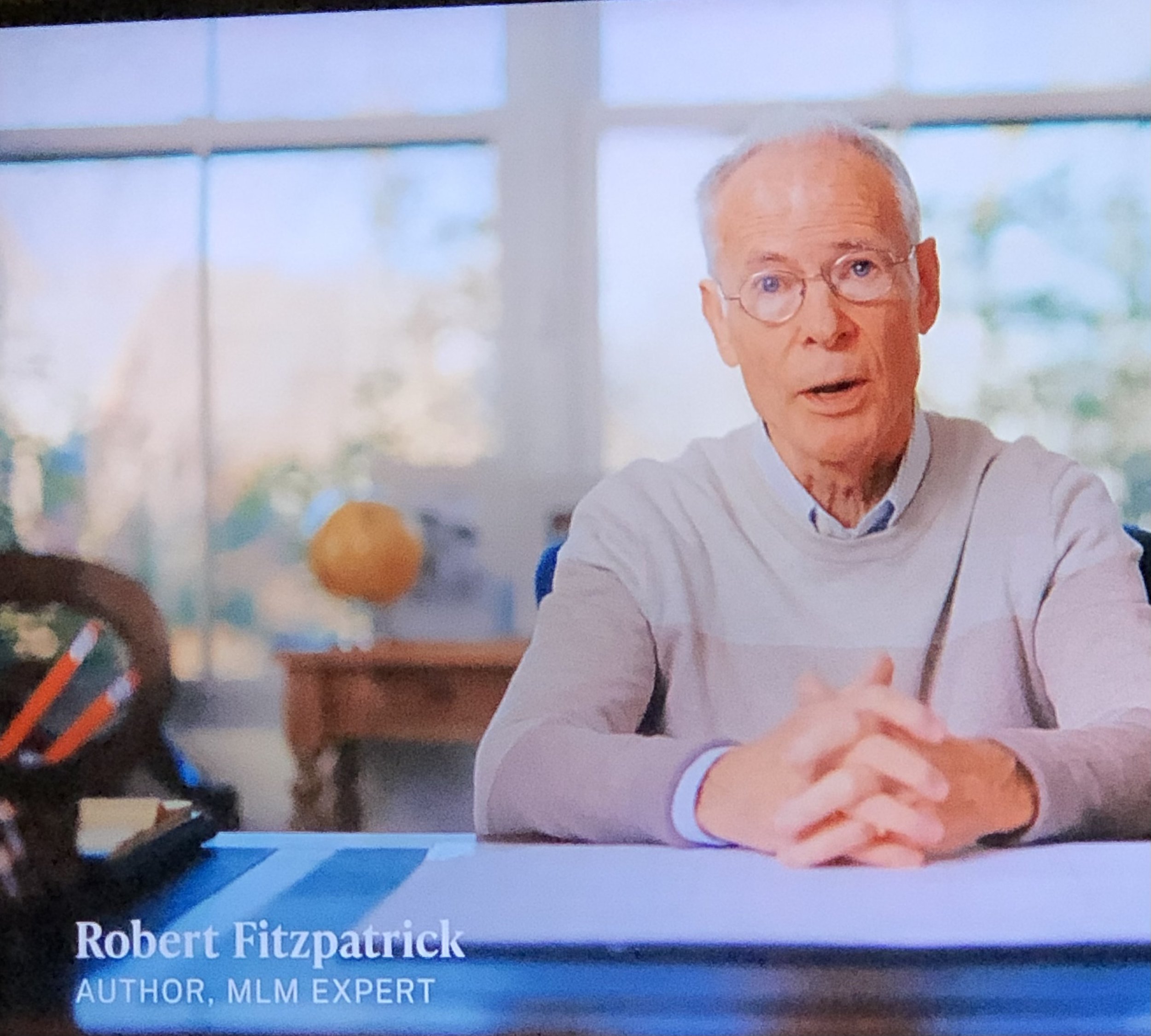Guest Blogpost: Robert FitzPatrick
Make sure to check out my chat with Robert Fitzpatrick on Episode 59 of The Teacher As…Podcast .
Anti-MLM Education
Over the 20 years that I have been involved in the MLM/pyramid world, I have been baffled and often discouraged by how vulnerable, persuadable and unprepared people are for the manipulations and deceptions used in MLM. I have had the thought that their tragedies and losses reflect a widespread lack of capacity to navigate the modern world. The guiding perspectives of millions of people appear so limited and distorted, they are incapacitated to grapple with marketing scams and other forces of mind control and undue influence.
This thought is reinforced when I see how people are manipulated also by politicians and marketing schemes. It feels like commercial values and choices are increasingly seen by people as the essence of life itself with no awareness of a larger context or alternatives ways of living. Locked in a commercial box of choices only between Coke and Pepsi, people are disempowered by fake information, e.g. advertising, marketing, propaganda, hype, spin, and disinformation.
As we have recently seen teachers pressured to avoid discussions of “uncomfortable” realities of racism or American history, teachers trying to bring reality and light to the realm of legalized pyramid schemes, marketed as “business opportunities”, I suspect, would arouse similar objections and questions. As I state in my book:
“To get to the core reality that can explain MLM’s phenomenal spread, one must also re-examine the state of opportunity in America today, the decline of the middle class, and popular views of wealth as measures of “success,” happiness, and human worth.
These are the hallowed grounds of American society, guarded by firmly held but seldom examined beliefs. They are areas of reality and truth generally outside the bounds of news media coverage.
Those who pursue the untold story of multi-level marketing risk being cast as heretics or accused of cynicism, socialism, negativity, or blasphemy. Those who follow this inquiry into the depths of “MLM” do so at their own risk.”
All that said, a useful orientation for students that would better equip them to recognize scams or at least to able to critically question them when solicited would include:
• Awareness of the nature of a pyramid scheme versus a legitimate enterprise.
• Learning the wider distinction between speculative money-making schemes versus actual careers, livelihood and sustainable work
• Learning about how a pyramid can be disguised, that is, learning how to look past hype and ask about sources and facts.
• Cultivating a habit of questioning marketing messages of all kinds, or recognizing the nature of advertising and marketing versus factual, objective reality and authentic communication.
Reflecting on my own high school years so long ago, we were quite protected from dangers and abuses of the real world. Finance was not an urgent matter in considering our futures. We were largely free to be odd, make mistakes, waste time, and be teenagers. We were subjected to much less marketing and commercialism. Most of the opportunities awaiting us were real.
Now, the mean world is inside the schools pervasively and aggressively with commercial marketing, social media, online influences of every type. Students are told there are tracks for success, and that track is narrow, time-sensitive, shifting. No room for eccentricity, originality, creativity, pondering, art, or non-commercial rewards. Among these influences with these hyper-commercialized messages is MLM spreading fake information about money and success, the nature of work, how the world works, and what constitutes human worth. Work is depicted far less as an expression of interest and talent and more as merely a pre-deetermined roadway to money. Rather than viewing work as a natural aspect of life, like nutrition, health, sexuality, family, humor, social relationships, power, and so on - and therefore a personal expression – it is presented as a kind of purchase, like a car or a sofa, an aspect of life “style”, rather than part of life. Make the wrong choice, and you lose. Pick well, you’ll be a “winner.” As to what it all means, that question is said to have no relevance.
I think to equip students to grapple successfully with today’s ubiquitous frauds, requires more than teaching vigilance and “red flags.” The schemes appeal to non-rational beliefs and values and they play upon real life circumstances, giving them a veneer of authenticity. Students need to learn about the nature of these frauds but also to examine how and why they appeal to us.
-Robert FitzPatrick
